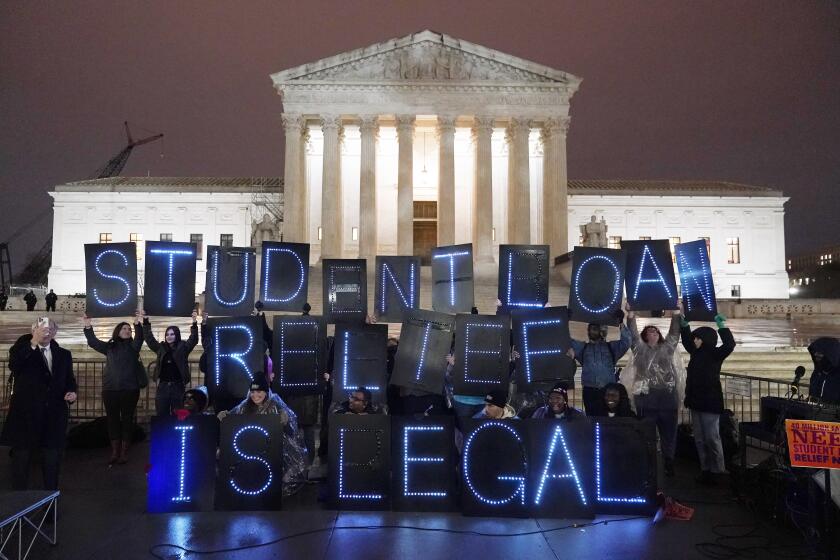Baltimore Ends Contract for School Privatization
The school privatization experiment here is over--at least for now.
More than halfway through one of the nation’s largest experiments in school privatization, Baltimore terminated what’s left of a five-year contract with Education Alternatives Inc., a company hired to run nine city schools.
Schools Supt. Walter Amprey blamed the city’s budget deficit for the decision.
“I don’t think that we’re ruling out working with EAI or similar companies again,” Amprey said Wednesday. “I was not committed to EAI as much as I was the concept.”
But teachers union President Irene Dandridge said the experiment failed because the company didn’t improve student performance.
“It just couldn’t work,” Dandridge said. “I don’t think we’ve learned anything except to be wary of people who make money off education.”
The cancellation followed months of negotiations with EAI, which in 1992 entered into the $180-million contract to run the nine schools through June, 1997. About $44 million was left on the contract.
Within the past two weeks, Mayor Kurt Schmoke asked the company to cut its fees by $7 million to help deal with a $32-million education budget shortfall.
The company agreed last week, but only after insisting any cut be accompanied by a guarantee it would be retained for the next school year and given a chance to earn the money back.
The school board told Schmoke on Tuesday to end the contract.
“We are gravely disappointed . . . but we are not willing to cut back on what we’re offering the children of Baltimore,” said John Golle, EAI’s chief executive officer.
EAI claimed in August, 1993, that it raised test scores in the nine city schools by an average of nearly an entire grade level. But EAI admitted making an “unintentional error,” after a study by the American Federation of Teachers found that scores had declined.
Another study done by the University of Maryland, Baltimore County, showed that EAI students didn’t perform significantly better than others. It recommended the city continue the contract only at a reduced price.
More to Read
Sign up for Essential California
The most important California stories and recommendations in your inbox every morning.
You may occasionally receive promotional content from the Los Angeles Times.






